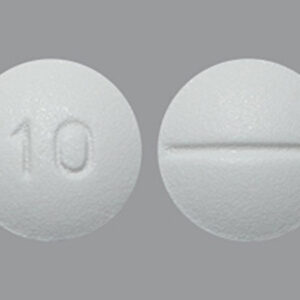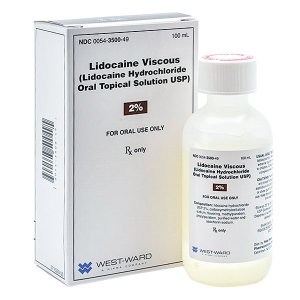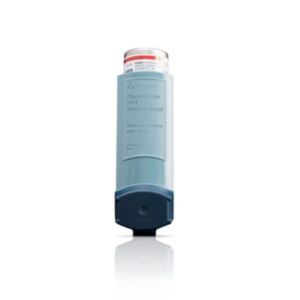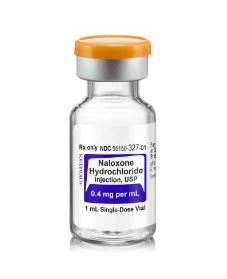Proposed removal of risk statements about cardiovascular diseases, breast cancer, and probable dementia from the Boxed Warnings, as well as other proposed safety-related labeling changes, to clarify the benefit/risk considerations for these drugs
[11/10/2025] Today, the U.S. Food and Drug Administration (FDA) informed application holders of menopausal hormone therapies (MHT), also commonly referred to as Hormone Replacement Therapy (HRT), about requested labeling changes aimed to better clarify the benefit/risk considerations for these medications. MHTs are used to provide relief from common menopause symptoms, such as hot flashes and night sweats (also known as vasomotor symptoms (VMS)) and symptoms due to changes to the vagina, vulva, and urinary tract caused by decreased estrogen, also known as vulvovaginal atrophy (VVA), or now more commonly known as genitourinary syndrome of menopause (GSM). Some MHTs are also approved to prevent osteoporosis (bone weakening).
The proposed labeling changes follow the agency’s comprehensive assessment of relevant literature since the publication of two long-term, large-scaled studies under the Women’s Health Initiative (WHI), updated drug utilization review, and public input about MHTs. The two WHI studies investigated the role of estrogen plus progestin (WHI EP) in women with a uterus or estrogen alone (WHI E) in women without a uterus in preventing heart disease, cancer, and bone fractures in postmenopausal women 50 to 79 years.
Both WHI studies began in the 1990s and were prematurely stopped in the early 2000s (WHI EP in 2002 and WHI E in 2004) because investigators reported an increased risk of breast cancer in the WHI EP study, and an increased risk of stroke and lack of evidence of coronary artery disease prevention in the WHI E study after an average of five and seven years of follow-up, respectively. Two other WHI studies evaluating estrogen plus progestin or estrogen alone in women 65 to 79 years for dementia prevention also reported an increased risk of probable dementia.
Based on the WHI findings, in 2003, FDA began approving class-wide labeling changes for estrogen plus progestogen and estrogen-alone products approved for VMS, VVA, and prevention of postmenopausal osteoporosis. These changes would eventually include a Boxed Warning for increased risk of serious adverse events, including cardiovascular disorders, invasive breast cancer, and probable dementia.
In the ensuing years, the agency received questions about whether the Boxed Warnings resulting from the WHI findings were warranted, particularly for local vaginal estrogen-only products. Certain groups have raised concerns about the applicability of the WHI studies’ methodologies and interpretations to menopausal women for whom MHT is warranted. The women’s health community has also raised concerns that a substantial proportion of symptomatic menopausal/postmenopausal women for whom MHT is indicated and would be beneficial are not prescribed MHT or decline treatment with MHT because of these Boxed Warnings. Most recently, FDA held an Expert Panel on July 17, 2025, and the panel focused on the risks and benefits of MHT. After the Expert Panel meeting, FDA requested broad public input on the risks and benefits related to menopause hormone therapy.
Although menopause is a natural process in a woman’s reproductive life, menopausal symptoms can significantly and adversely impact women’s quality of life. FDA has approved numerous MHTs to treat moderate/severe hot flashes, VVA, and for some, prevention of bone thinning. In 2020, the U.S. Census Bureau data reported approximately 41 million women in the U.S. were aged 45 to 64 years, the ages when VMS is most common.[1] A study published in 2021 found the prevalence of moderate to severe VMS in women 45 to 65 years to be approximately 34%.[2] However, FDA’s review of drug utilization data from U.S. outpatient prescriptions for MHT indicated that, in 2020, approximately 2 million women aged 46 to 65 years received a prescription for systemic estrogen-alone or combined estrogen plus progestogen. Such drug use data suggest MHT may be under-utilized among women likely to benefit from MHT.
FDA recognizes the primary aim of the WHI trials was to evaluate the impact of hormone therapy on cardiovascular disease and other chronic medical conditions in post-menopausal women across all ages, with the average participant aged 63 years. In contrast, women typically experience bothersome VMS much earlier in the menopausal transition time (average age ranging between 45-55 years). The average age of women experiencing menopause in the U.S. is 51 years, meaning that the age-related health conditions in the WHI population did not match the typically younger and healthier women who may start MHT for bothersome VMS. To help address this incongruity and better inform patients and prescribers about the level of risks associated with MHT in the younger cohort of women (age range 45-55 years) most likely to start these drugs for VMS, FDA considered multiple additional analyses and long-term follow-up of the WHI participants since the initial WHI results. Regarding the probable dementia risk, the WHI studies enrolled women aged 65 to 79 years, a population much older than women starting MHT.
Based on the agency’s assessment of available data and recognition that menopause symptoms can significantly impact a woman’s quality of life, FDA has re-considered the benefit/risk balance of these drugs and is requesting the following key changes to the prescribing information of MHT products:
- For all MHTs (systemic and local vaginal products):
- Specifically in the label’s Boxed Warning, the agency’s most prominent safety-related warning:
- Remove the language related to cardiovascular diseases, breast cancer, and probable dementia
- Remove language related to endometrial cancer except in the systemic estrogen-alone drugs
- Remove the recommendation to use the lowest effective dose for the shortest amount of time
- Specifically in the label’s Boxed Warning, the agency’s most prominent safety-related warning:
- In the labeling as a whole:
- Remove the probable dementia warning
In addition to the above changes:
- For systemic products:
- In the labeling as a whole:
- Add consideration of starting hormone therapy for moderate to severe VMS in women < 60 years old or < 10 years since menopause
- Add WHI data in women 50-59 years old
- Retain the Boxed Warning about endometrial cancer in the systemic estrogen-alone products
- Retain information about cardiovascular diseases and breast cancer warnings
- In the labeling as a whole:
- For local vaginal estrogen products:
- In the labeling as a whole:
- Condense safety information and prioritize information most relevant to the local vaginal formulation
- In the labeling as a whole:
1 https://www2.census.gov/library/publications/decennial/2020/census-briefs/c2020br-06.pdf
2 Nappi RE, Kroll R, Siddiqui E, Stoykova B, Rea C, Gemmen E, Schultz NM. Global cross-sectional survey of women with vasomotor symptoms associated with menopause: prevalence and quality of life burden. Menopause. 2021 May 24;28(8):875-882.

 Our Pill Pass® Drug List is only $6.99 or less and Shipping is FREE!
Our Pill Pass® Drug List is only $6.99 or less and Shipping is FREE!







